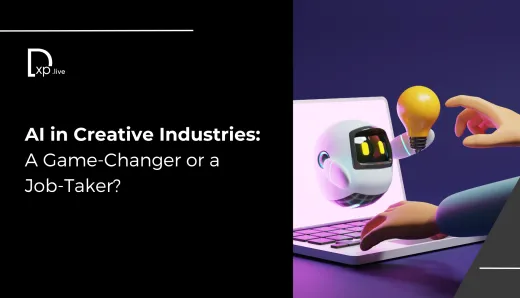The Human Touch in Digital Age: Why Personal Connections Trump Tech in Customer Loyalty

In an era where artificial intelligence, machine learning, and automation dominate headlines, it's easy for C-suite executives to be swept up in the tide of technological innovation. The allure of streamlined processes, data-driven insights, and scalable solutions is undeniable. However, amidst this digital revolution, we risk overlooking a fundamental truth: at its core, business is about people connecting with people.
As the CEO of Zappos, Tony Hsieh, famously said, "Customer service shouldn't just be a department; it should be the entire company." This philosophy underscores the importance of human touch in building lasting customer relationships.
The Paradox of Tech-Driven Customer Experience
The irony of our digital age is palpable. As we've gained unprecedented ability to reach millions with the click of a button, we've simultaneously created a chasm of impersonality. Customers increasingly find themselves navigating labyrinthine automated systems, desperately seeking a human voice on the other end.
According to a study by PwC, 75% of consumers worldwide desire more human interaction in the future, not less. This statistic should serve as a wake-up call for tech-focused executives who might be tempted to automate every customer touchpoint.
The Hidden Cost of Automation
While automation can significantly reduce operational costs, it often comes at the expense of customer satisfaction and loyalty. A report by Accenture found that 83% of U.S. consumers prefer dealing with human beings over digital channels to solve customer service issues.
"In this age of automation, making customer service more human is what will set you apart," notes Shep Hyken, customer service and experience expert. This insight challenges us to reconsider our approach to customer interactions.
The Neuroscience of Human Connection
The preference for human interaction isn't just a matter of convenience; it's hardwired into our biology. Neuroscientist Matthew Lieberman explains in his book "Social: Why Our Brains Are Wired to Connect" that our need to connect with others is as fundamental as our need for food and water.
When customers have positive human interactions with a brand, their brains release oxytocin, often called the "trust hormone." This biological response creates a sense of connection and loyalty that no algorithm can replicate.
Strategies for Infusing Human Touch in a Digital World
- Empower Your Front-Line Employees- Give customer-facing staff the autonomy to make decisions that benefit the customer. Ritz-Carlton famously allows its employees to spend up to $2,000 per day per guest to resolve any issue, no questions asked. While this exact policy may not fit every business model, the principle of trust and empowerment remains crucial.
- Personalization Beyond Algorithms- Use technology to gather data, but leverage human insight to act on it meaningfully. Amazon's Jeff Bezos advocates for this approach, stating, "We see our customers as invited guests to a party, and we are the hosts. It's our job every day to make every important aspect of the customer experience a little bit better."
- Proactive Outreach- Don't wait for customers to come to you with problems. Implement a system where team members regularly check in with clients, not to upsell, but to ensure satisfaction and offer support.
- Embrace Video Technology- In situations where face-to-face meetings aren't possible, video calls can bridge the gap. Seeing facial expressions and body language can significantly enhance the quality of interaction compared to phone or email.
- Create a Culture of Empathy- Foster an organizational culture that prioritizes understanding and responding to customer emotions. As Maya Angelou wisely noted, "People will forget what you said, people will forget what you did, but people will never forget how you made them feel."
- Balance Self-Service with Human Support- Offer efficient self-service options but make it easy for customers to reach a human when needed. JetBlue's SVP of Customer Experience, Frankie Littleford, emphasizes, "Technology can support the customer experience, but it will never replace human interaction."
- Personalized Content and Communication- Use data analytics to tailor content and communications, but have real people craft the messages. This approach combines the scale of technology with the nuance of human understanding.
Measuring the Impact of Human Touch
To justify investment in human-centric approaches, it's crucial to measure their impact. Consider implementing the following metrics:
- Net Promoter Score (NPS)
- Customer Lifetime Value (CLV)
- Emotional Connection Score (ECS)
- First Contact Resolution Rate
- Customer Effort Score (CES)
The Competitive Advantage of Human Connection
In a world where products and services are increasingly commoditized, the quality of human interactions becomes a key differentiator. As Richard Branson, founder of Virgin Group, puts it, "The key is to set realistic customer expectations, and then not to just meet them, but to exceed them — preferably in unexpected and helpful ways."
By prioritizing human connections, companies can create emotional bonds with customers that transcend transactional relationships. These bonds lead to increased loyalty, higher customer lifetime value, and organic word-of-mouth marketing that no ad campaign can buy.
Conclusion: The Future is Human
As we navigate the digital age, the most successful companies will be those that leverage technology to enhance, not replace, human interactions. They will use AI to free up human resources for more meaningful engagements, employ data analytics to inform empathetic responses, and utilize automation to create space for creativity and personal touch.
The challenge for C-suite executives is to resist the allure of complete automation and instead strive for a harmonious blend of technological efficiency and human warmth. In doing so, they will not only meet the growing consumer demand for personal connection but also build a sustainable competitive advantage in an increasingly digital world.
Remember, in the words of Simon Sinek, "Customers will never love a company until the employees love it first." By fostering a culture that values human connections, both internally and externally, you set the stage for unparalleled customer loyalty and business success.
The future of customer loyalty isn't in algorithms or AI — it's in the timeless power of human connection, amplified and enabled by technology. The companies that master this balance will be the ones that thrive in the decades to come.




